students, workers & explorers going to New Zealand & travelling from New Zealand.

Answer our simple questions to get started


InsurancesafeNZ provides three different travel insurance policy categories: Studentsafe, Workersafe and Explorersafe. This means that if you’re travelling to New Zealand, travelling within New Zealand or temporarily leaving New Zealand, we have something to offer you. Use the Policy Finder to narrow your policy search and get a quote. Our website is also packed with great information on how to keep safe, how to make the most of your time abroad and how to understand your travel insurance policy better. If you need further assistance contact one of our friendly staff on our toll-free number 0800 486 004 (within NZ) or +64 9 488 1638 (outside of NZ).
Studying in New Zealand is an adventure of a lifetime, which is why a range of unexpected bumps and accidents are covered under Studentsafe policies.
But when it comes to certain medical conditions, you may not be automatically covered. That’s why it’s important to disclose any medical conditions you want cover for.
The term “Pre-existing Medical Conditions” is commonly used when applying for insurance. This refers to your medical history and the full definition can be found on
Being in good health is key to embarking on an exciting study adventure in New Zealand.
Anyone planning to study in New Zealand for more than three months is required to apply for a student visa.
When applying for a new or to renew a visa, you may need to provide New Zealand Immigration with medical information to demonstrate an acceptable level of health.
Studentsafe policies do not cover medical costs for your visa application.
Studentsafe policies are desig
Your wellbeing is important which is why Studentsafe provides cover for medical and related expenses.
But before you make an appointment for check-ups related to your health, it’s important to understand what is and isn’t covered under your policy.
Studentsafe does not provide cover for certain medical tests listed as Exclusions under Section 1: Medical and Related Expenses as set out below:
9. Health screening, medical and dentals reviews or vaccinations.
&
Staying healthy plays a vital role in making the most of your study adventure. If you have been prescribed medication and are looking to make a claim, it’s important to understand what is and isn’t covered under your policy.
Just because a certain medication has been prescribed by your doctor, it does not mean that it is automatically covered.
Studentsafe does not provide cover for certain medical tests listed as Exclusions u
Keeping mentally well is important to make the most of your study adventure.
While studying away from home is an exciting life experience, there are times you may feel overwhelmed or experience loneliness, stress, anxiety and depression.
During these challenging times, it’s important to recognise the pressures you may be under, whether it’s adjusting to a new environment or the added load of assignments and exams.
If you need professional help, you can feel assured knowi
If you’re reading this article, you’ve already made a sensible choice. If you’re in a new relationship, or thinking about starting to date, it’s important to think about how you can ensure that you and your partner stay safe when you’re having a little extra ‘fun’.
So read on to learn more about what steps you should be taking to keep safe. The consequences can range from irritating to life-threatening – and that isn’t a gamble anyone should take.
Any new culture will have customs that you will start to learn very quickly as soon as you arrive! To give you a head start on your time in New Zealand, we’ve got a few key bits of information about Kiwi culture – and a whole lot of detail about speaking like a local!
When you’re walking the streets of New Zealand – or even when you’re still at the airport and navigating escalators – it’s good to remember that we drive on the left, not the righ
Unless you’re really into skiing, winter in New Zealand isn’t really the most exciting time of year. It’s not cold enough for there to be pretty snow falling in the cities, but it’s still cold enough that you don’t want to spend time outside unless you have to. Instead of snow, we mostly get rain and wind. It’s certainly not terrible – but it does give you a good excuse to go somewhere sunny if you have the time and budge
Adjusting to a new workplace comes with challenges wherever you are in the world – and if you're in a new country as well as a new workplace, those changes can be even more extreme. New Zealand culture is quite friendly and informal, and this extends to many workplaces. But it can be difficult at times to understand where the limit is – how casual is too casual and what will make you look unprofessional? How formal is too formal and what will make you look too unapproachable?
Some of
Everyone experiences periods of stress in certain situations – perhaps exams are coming up, or you’ve spent a little more than you intended to at dinner and pay day is still a couple of days away. That’s a normal part of life, and most of the time, it goes away fairly quickly when the source of the stress comes and goes. You pass your exam, you check your bank account and ther
A healthy worker is a more productive worker. It seems like an obvious statement to make, but in today’s working world, many workers feel that they have keep pushing and pushing to get results – even at the expense of their health and wellbeing. Workplaces need to be more supportive of their staff to make sure that they feel they are able to take time to get healthy if they are unwell, or to express their concerns if they are overburdened with stress.
Ask any adult what their student years were like, and there will almost always be two things that everyone has in common – lots of fun, and hardly any money! But if you’re new to a city or even a country, it can be hard to know where to begin when it comes to finding social activities that you can do on a student budget.
To help you out, we’ve rounded up some of our top tips for free and cheap things to do in New Zealand’s main student cities and towns to get you started!
Flatting doesn’t have to be expensive. There are a number of ways you can set up a flat on a budget without losing out on quality and the occasional treat. To make sure that you get the best experience possible no matter what your income may be, we’ve brought together a few of our favourite tips and t
When you’re away from your family and community that feeling of homesickness can feel very overwhelming. Making friends and keeping busy are the easiest ways to prevent homesickness – but you need to put the effort in. If you sit at your computer looking over your soci
When you’re planning adventures overseas, there’s so much excitement that it can be easy to forget about the parts of travel that are a little less glamorous. Organising travel insurance may not be as thrilling as planning your routes and researching the major attraction
For many people, the shift from university study to the working world is one of the biggest changes they will ever experience. Life until that point is focused on formal education – sitting in class, doing homework, taking notes… and then all of a sudden, it’s time to step out into
No matter where you go in the world, someone will tell you to keep safe and often there’s a good reason for it. When travelling or moving somewhere new it can be tempting to step outside of your comfort zone and give everything a go. While this is a great attitude it’s important to explore your new surrou
Relocating to a new country for work is hugely exciting. Getting a new job and home and navigating new cultures, practices and languages is an immersive experience and can be incredibly consuming.
An “out with the old, in with the new” approach can be tempting – after all, you’re making a
In general, the younger your children are the easier it will be for them to pick u
For many of us, our pets are part of the family. For expats intending to move overseas with their pet, planning and research before the move is essential. It is crucial to ensure the welfare of your beloved pet during and after transit, and that regulation surrounding the importation and exportation of pets is complied with.
Research animal import regulations for your new country of residence, to determine what conditions must be met for your pet to be allowed en
Every city has its secrets. When you live somewhere it can be very easy to get caught up in your day-to-day activities and forget about the beauty that surrounds you. However, while travelling it is a completely different story; you’re there to create memories and explore every corner you can in order to make the most of your adventure. So how do you find the ‘hidden gems’ – the secret places that most visitors don’t know about?
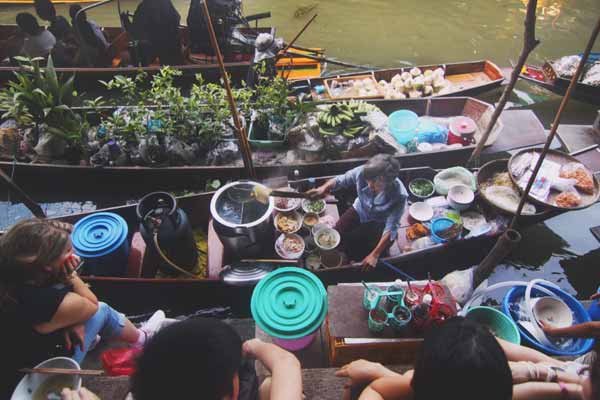
Apps
There are a number of apps available where users are able to share information about where to go, what to do and what to avoid in specific areas.
Findery, FourSquare and Yelp
Most of these types of platforms give you the opportunity to search for specific activities, and will show you reviews. Findery is used to share stories about different places and has a number of blog-style posts written by various people about the areas they have visited.
They can be great to read even if you don’t explore the location in the same way.
ChefsFeed or Denizen
For those looking for good places to eat, there are a number of applications you can use that have user ratings and advice on what to get. All you have to do is search your area and what you want to eat. ChefsFeed will even let you type in a particular dish, so if you’re in an area that is famous for a particular cuisine, search it and give it a go – it will open your taste buds to a whole new sensation!
Meetup.com
Some of the groups on Meetup – such as hiking groups or climbing groups – are a great way to explore beyond the city you’re in and an even better way to get to know people in the area. Depending on which city you are in, there may be other online forums that can be used to explore. Given Meetup is a bunch of random people getting together for a particular activity, everyone is in the similar situation of not knowing each other so it makes bonding a lot easier. You may make some friends along the way who can introduce you to other spots.
Ask the locals
While locals may not have explored much of their backyard, they generally have a good idea of what you should and shouldn’t see. They also tend to know if there is a cheaper way to explore, for example in some places, you’ll want to pre-book tickets for events or shows because the prices are more expensive if you buy them at the venue. If you come across a local who has travelled before, they are likely to have also had a look around their own city and found some secret spots that haven’t been overwhelmed with other travellers.
Get ‘lost’
If you’re in a new city, the best place to find hidden gems is to go exploring, take a walk, head to the highest point you can find and then look down. You may be able to see a pocket of beauty that you can explore from there. Otherwise, follow your feet, you never know where you could end up. Make sure you have a map and know the name of the place you are staying at before you head out so that you can work your way back to where you are staying.
Find some other tourists
If you’re staying in a hostel, get to know the other people staying there. Find out what they are doing and see if you can tag along, or ask them where they have been, what they enjoyed most. They may even have some travel tips for other areas you are looking at exploring!

Geocaching
If you check out geocaching.com and type in the address of where you are staying or of an area you are exploring, you may find some geocaches nearby! All you need is a smartphone or a GPS device in order to find these hidden treasures. You can go geocaching at any time of day or night – just research your area first to see how safe it is to wander around at night. It will open your eyes to some beautiful places – there are currently 2 million geocaches around the world!
Try a different mode of transport
If you’ve been doing a lot of walking on your travels, find an area where you can rent a bike or some rollerblades and explore the area that way. Bikes can cover more distance than if you travel by foot and can go where cars can’t which means that you can go off the beaten track a bit more. Some cities will have cycleways to the outer suburbs so if you’re fit enough these are great ways to explore areas you might otherwise miss out on.
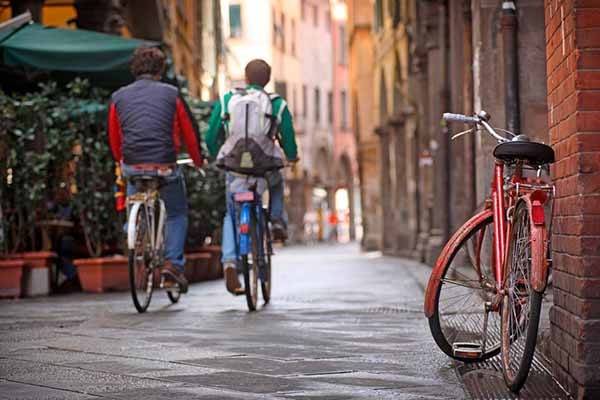
Create a bucket list
Not only will this give you some ideas of what you can do while travelling, you may also discover that you can tick off some of these activities in different countries! Think about the dancing man video where the guy dances in lots of different countries – that could be you. Bucket lists are a great way to make sure you experience everything. You may find that while you’re embarking on one adventure, it gives you other ideas of what you want to experience.
You can even create something with a more specific timeframe – creating a 101 Things In 1001 Days list can be an incredible way to make sure you get through a whole lot of your top goals in a set period of time (about 2.7 years, in fact).
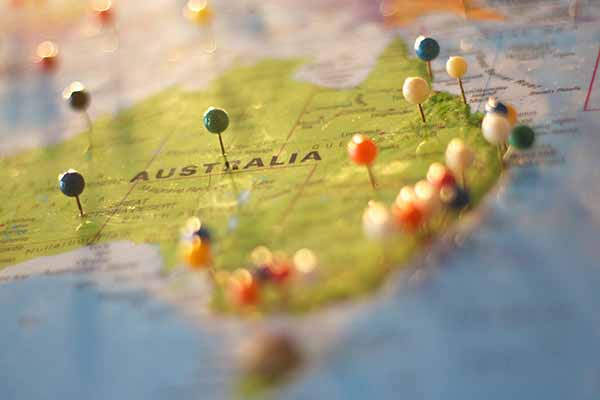
Use social media
Instagram is one of the best tools for discovering cool things. If you type in your location, you will find what other travellers and locals have been doing in the area. You may find some really amazing images that you want to replicate. Instagram can also be used as a photo library for travellers.
Update your location on Facebook and create a status that tells people where you are and what you’re doing. Facebook’s algorithms see moving between cities as being a major life event, meaning it will show up on most of your friend’s newsfeeds. You may find that people message you to let you know that they have friends who live in the city you are in. As the world becomes more accessible, the likelihood of someone knowing someone in your area is increased.
Consult a travel guidebook
Guidebooks from companies like Lonely Planet, DK Eyewitness, Rough Guides and Fodors can point you in the right direction for places to stay and things to do, and they can also give you tips of what to expect in certain places. Once you’re there, follow your feet and see what piques your interest. Travel guidebooks are pretty easy to use and unlike mobile phones, they don’t require connection to a local telecom provider or wifi to use. They will usually also come with a map of some kind (DK Eyewitness is especially good for a variety of maps) to help you discover more about the area you are in, and most of the time it’ll also include a little guide to the local language.
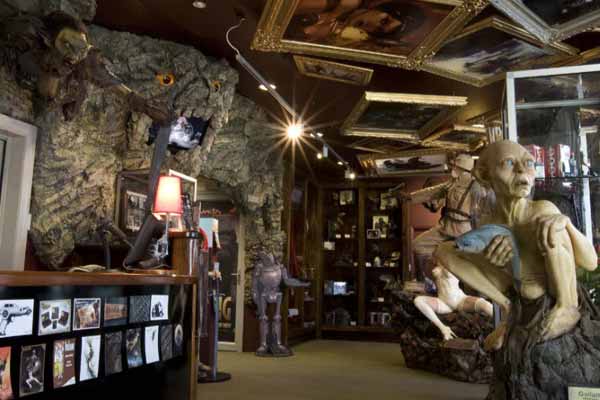
Find a market
Marketplaces are full of delicious treats and generally bring people together. In New Zealand there are farmers’ markets that run on weekends in most cities. In Auckland and Wellington (and other main centres) there are also night markets that host a range of cheap food outlets. Not only will it be an adventure but marketplaces hold all sorts of secrets and if you start talking to people there you may find even more hidden gems!
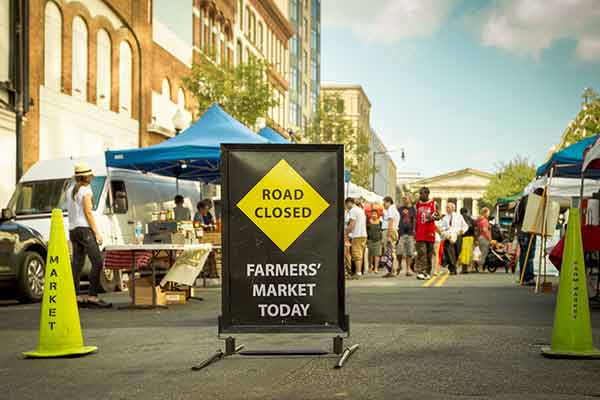
Find what you love
Do you have a hobby back home? Why not try doing it while you are abroad? If you play football at home, see if there is a team that is short of a player for the afternoon and get involved. While you may only be visiting a country for a short period of time, this can be a great way to meet new people and experience the local culture. If you love live music search for a local club that has some.
Put yourself out there, go exploring, try new things and let your feet do the walking and your senses will discover things you weren’t expecting. Get involved in activities and events that are happening in the area you are in – and from there you may discover new adventures and make some friends along the way. It’s all about keeping an open mind and staying safe.